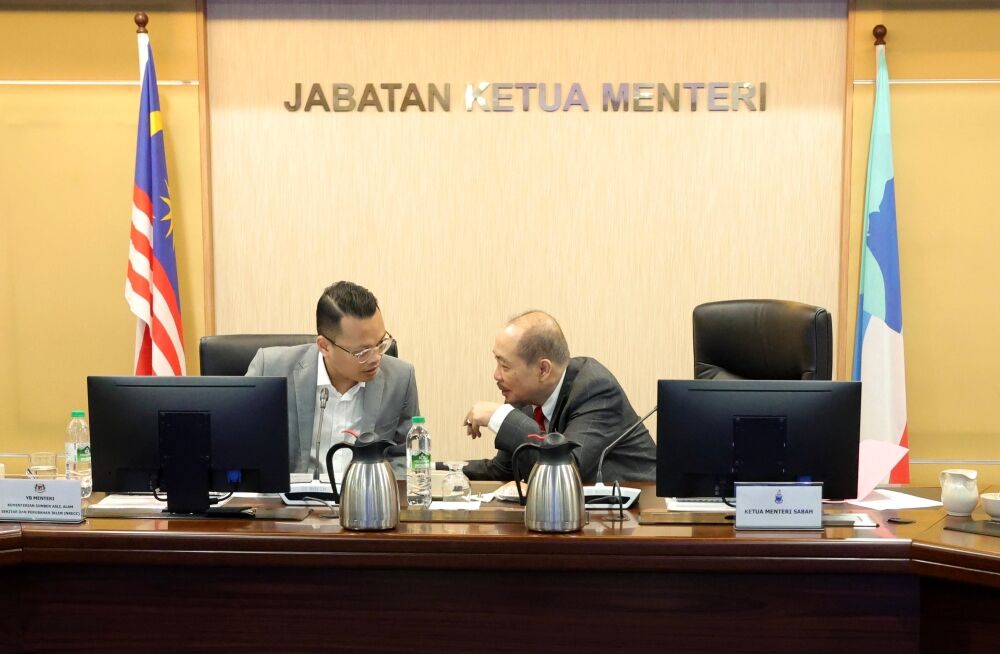Sabah set to control electricity supply with PM Anwar’s approval

Sabah’s Chief Minister Hajiji Noor announced that a special state assembly sitting is set to take place on January 3 next year, paving the way for Sabah to assume regulatory control of its electricity supply. Prime Minister Anwar Ibrahim has given the green light for the transfer of regulatory power, which is expected to occur on January 1, 2024. To meet this deadline, Hajiji emphasised the need for coordination and cooperation from all parties to resolve any legal issues.
Among the necessary steps for the transfer of regulatory power is the approval from the Federal Cabinet to invoke and gazette Article 95C of the Federal Constitution. This would suspend the Electricity Supply Act 1990 (Act 448), Renewable Energy Act 2011 (Act 725), and Sustainable Energy Development Authority Act 2011 (Act 726) in Sabah. Following this, consent from His Majesty Yang di-Pertuan Agong is required, along with a Lay Order in Parliament that can be tabled after the suspension.
Hajiji’s statement came after a steering committee meeting on the handing over of electricity supply regulatory power to Sabah, which he co-chaired with Natural Resources, Environment and Climate Change Minister Nik Nazmi Nik Ahmad. The Sabah government will table two bills on the Electricity Supply Enactment and Renewable Energy Enactment, as well as an amendment to the Sabah Energy Commission Enactment 2023, during the special State Assembly sitting.
“We need concurrence from ministries and relevant agencies both at the federal and state level so that all these processes can be done smoothly, especially in terms of legality and to avoid interruption to the electric supply operations in Sabah,” Hajiji stated.
In anticipation of the transfer of regulatory control, the federal government has been urged to facilitate and continue processes to ensure the on-time completion of projects planned under the Sabah Generation Development Plan. This includes fast-track measures to increase power at the East Coast, aimed at restoring Sabah’s electricity reserve margin to at least 30% by September this year.
“This will provide an immediate solution to the acute capacity shortage in Sabah, thus demonstrating the state and federal government’s commitment to resolving the issue comprehensively and effectively,” Hajiji said.
The meeting also decided to add generation capacity on the west coast using existing natural gas supply and other additional generation projects throughout Sabah. The state government plans to increase Large-Scale Solar power production to 100MW in 2026 on the east coast, recognising the importance of renewable energy in supporting the national neutral carbon initiative and the high potential of solar energy in Sabah.
Hajiji also highlighted the Sabah government’s stance on the Southern Link 275kV Transmission Line project from Sipitang to Tawau. The project is crucial for boosting grid resilience and completing the 275kV loop system, enabling higher electricity capacity distribution to major industrial users. The Chief Minister stressed that the federal government must allocate funding via grant for the project, as it is a public amenity that must be completed by 2028 to enable power from two new hydroelectric stations to be channelled to consumers through the state grid.
Lastly, Hajiji announced that a Sabah Energy Roadmap and Masterplan 2040 (SE-RAMP 2040), prepared by ECoS and covering various strategies and initiatives to balance power needs and ensure energy security, affordability, and environmental sustainability, will be launched soon.
Latest Thailand News
Follow The Thaiger on Google News:


























